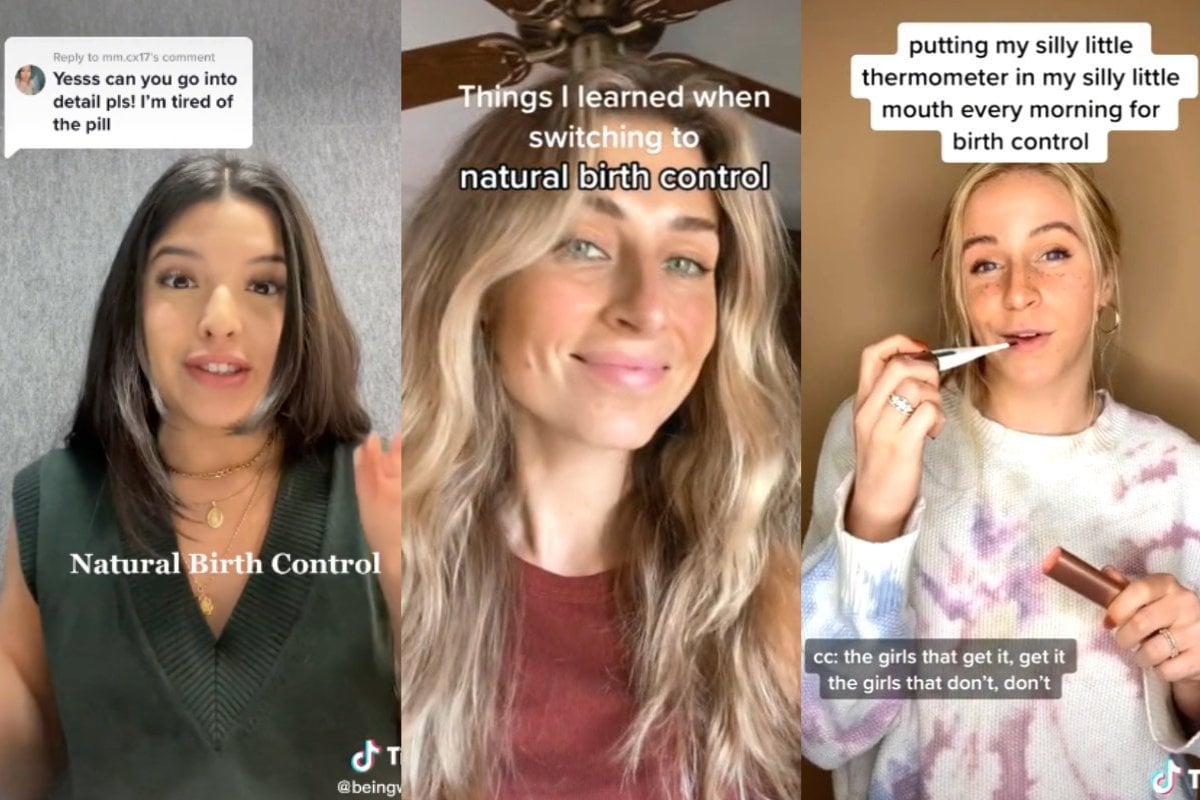
#Naturalbirthcontrol is trending on TikTok.
Millions of people are watching videos where influencers talk about the terrible side effects they suffered while on the Pill and say they’re so much better now that they’re off hormonal contraception.
“I’m so happy, and I feel like myself,” Shakira Victoria says. “I feel like when I was on the Pill I was just in a really weird cloud that I don’t kind of remember.”
@beingwellishot Reply to @mm.cx17 ♬ original sound - Shakira Victoria
These TikTok influencers are plugging books and apps and fancy thermometers. They’re claiming incredible success rates for natural birth control – some saying 99 per cent or more. There are some pretty big claims being made to some pretty big audiences.
The videos are finding fans among people who have suffered side effects from hormonal contraception themselves, or just like the idea of “natural” birth control.
In the States, where most of the videos originate, the trend is causing some alarm. It’s come at a time when access to abortion is being limited by the Supreme Court’s decision to overturn Roe v Wade. There are fears these women promoting natural birth control on TikTok are playing into the hands of Republicans who would like to restrict access to contraception. Some people have pointed out the links between some of these creators and the religious Right.
Watch: Birth Control Advice - How to Compare Combination Birth Control Pills. Post continues below.





























































































